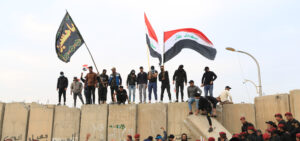

April 2023, Volume 34, Issue 2
Iraq’s Mafia State
Although Saddam fell twenty years ago, the politicians who have come after him still think like Baathists. But a new generation has begun making itself heard. It believes in Iraq as a nation and it understands democracy as more than a source of spoils to be divided among groups.
